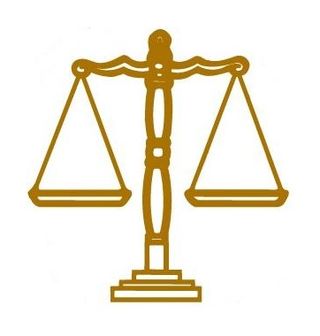Lawyer: Software Can Be Patented Even Without Code
There is an interesting post on software patents by Gene Quinn, a patent attorney and editor of the IPWatchdog blog. Quinn's advice is that there's always something that can be patented in software.

However, some software developers do not realize that patent applications can happen before the coding starts.
"Unfortunately, some [software developers] do the programming first and never approach the design as an engineering problem for which they have a unique solution," Quinn writes. "That means no attempt has been made to identify the unique characteristics so what is programmed is many times virtually identical to the prior art."
In the end, the attorney advises developers to focus on the idea and not so much on the code: "When dealing with software and other computerized inventions you should view the innovation as a system that provides a desired set of functionalities. If there is a uniqueness that you can identify you have something that can be patented. You don’t have a bunch of code or compiled 1s and 0s, what you have is an innovation that provides desired functionality."
Quinn stresses that, in the U.S. software can be patented if it is unique and if it is tied to a machine.
There has been a controversy brewing over opinions that software should or should not be patentable. However, Quinn argues that software is really what makes a computer work. In that view, a unique software can represent innovation and should be patentable. Critics of that argument, however, state that new software will have to build always on top of a previous software invention to become, in Quinn's way put, unique. If that is the case, then it is just a matter of time until software innovation could come to a standstill.
The takeaway from Quinn's post may be that not all software features should be patentable and generic functionality could be exempt. The patentable and innovative portion of a software patent, according to Quinn, is not so much the code in which an application is written, as this process simply reflects a form of translation from design to code and the "act of translation does not impart newness."
So, that would mean that, if you are simply writing code, you won't be considered an innovator. If you want to be an innovator in software, you don't have to be necessarily a software developer. In fact, you don't have to have a clue about software development, which is exactly the problem we are currently seeing with IP companies -- such IP companies that may have had an idea for some feature at some point in time, patented that feature and began collecting license fees when a software coder actually translates that idea into an actual product. In that sense, you could envision software-enabled time-travel, hope that it will be invented within the next few years and sue for royalties at that point. Some will argue whether that is the right approach to protect innovators.
Stay On the Cutting Edge: Get the Tom's Hardware Newsletter
Join the experts who read Tom's Hardware for the inside track on enthusiast PC tech news — and have for over 25 years. We'll send breaking news and in-depth reviews of CPUs, GPUs, AI, maker hardware and more straight to your inbox.
-
ct001 What happens when everything becomes patented? Because the patents they are giving are so broad/ambiguous, if you just have to come up with an idea, soon everything will be covered, indirectly or otherwise.Reply -
Goldengoose I don't agree with the system but the reason you can patent an idea is so that £millions$ isn't spent into projects in a race to get it finished first only to have a competitor complete it earlier than you and get the patent. It's not flawless because of people like apple.Reply -
sayakbiswas i wanna patent electrons moving through matter on a pre-defined path......hmm....y stop there......i wanna patent all the laws of science,and the ones yet to be discovered...Reply -
sayakbiswas jokes apart......this patent thingy is becoming more ridiculous by the day.......i have some ideas on how we'll communicate after 15-20 yrs........why dont i patent them and wait quietly for some one to make something vaguely similar and sue the poor chap/ evil corp to mars????Reply
btw....do i have to file patents in every country or just my homeland??? -
drwho1 I think that I need to patent "the act of having an idea".Reply
and... "the act to getting the idea to patent a idea"
Yep, that should cover everything.
PS: Apple.... Byte Me! -
back_by_demand Lawyer uses the legal system to successfully argue that black is whiteReply
...
Then is killed on a zebra crossing -
ojas imo it should be a two step process. Whoever thinks of something without a blueprint gets a patent even if there are other similar ones, but only if no one else submits a detailed blueprint either. But then you have to back it up with a product/blueprint to get a final patent, till then if someone else does the same thing by some other way, they cannot be sued or something.Reply
Or something like that, i mean, hell, i'm not a lawyer.
Most Popular






